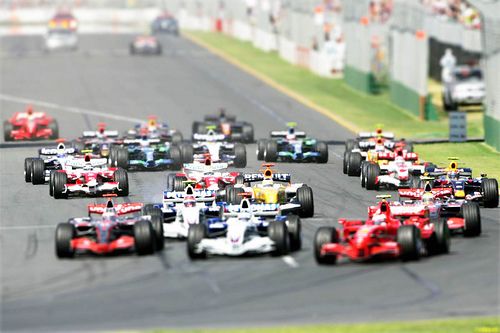The Vietnam Grand Prix is a threat to Formula 1
As part of their plan to market Formula 1 (F1) to a more global audience, F1’s owners Liberty Media have announced that Vietnam will host a new Grand Prix from 2020 onwards. Not only is this addition an unwelcome extension of the arduous F1 season, but it is also a short-sighted cash grab by Liberty Media.
Recent years have seen Grands Prix in Korea, India, Malaysia, Valencia, and Turkey all come and go
The expanded season calendar is a symptom of modern Formula 1. On its face an expanded calendar is of benefit to everyone. The owners generate more revenue, the fans get to watch more racing, and the teams get more opportunities to compete.
However, this is rarely, if ever, the case. Recent years have seen Grands Prix in Korea, India, Malaysia, Valencia, and Turkey all come and go, and these have rarely managed to attract large crowds or produce exciting racing. Soon enough they disappear from the calendar. All five of these tracks share similarities, most notably that Hermann Tilke and his circuit design company created them. This is reflected by many in the sport expressing dismay at his designs. While the Turkey Grand Prix was an exception, the other four were largely repetitive and dull.
Malaysia and Korea, famous for their empty stands, attract little local interest
Tilke has also designed the tracks at Abu Dhabi, Sochi, and Baku, which remain on the F1 calendar. These too have attracted criticism for the racing they encourage. Sochi and Baku are little more than glorified processions and Abu Dhabi rarely produces an exciting final race of the season. Yet, despite this, Liberty have chosen Tilke to design the circuit in Hanoi. Although the event may produce great racing in the end, this will be in spite of Tilke’s design, not because of it.
Problems have also arisen with regards to attendance at races. Particularly poorly attended were India and Turkey, largely due to the difficulty in travelling to these venues. Similarly, Malaysia and Korea, famous for their empty stands, attract little local interest.
For the teams, an expanded calendar means more travel and more time away from their families
Then there is the question of the cities being the attraction instead of the racing. It is telling that Liberty’s announcement of the Hanoi race makes much of Hanoi as an “iconic and culturally rich capital city”. Abu Dhabi is the greatest example of this. The day-night transition only serves as a gimmick rather than changing the racing.
Plans for a new Grand Prix in Vietnam are not surprising. Indeed, Liberty have previously expressed their desire to expand the F1 calendar to 25 races. When asked about this, five-time world champion Lewis Hamilton responded: “I am not going to be here if it gets to 25 races, that’s for sure”. Fans and teams alike largely agree with this view. For the teams, an expanded calendar means more travel and more time away from their families. It also becomes difficult for them to maintain a high standard of competition with a more packed calendar.
Liberty Media, in their ambition to take Formula 1 to a new and revolutionary level, stand to destroy the magic of the sport
From a fan’s perspective, a longer season seems stretched out. A 15-18 race calendar is a perfect size, providing a season in which fortunes can ebb and flow. The expanded 21-race season that is in place at the moment always seems to ebb away towards the end, particularly in the past two years.
The introduction of an expanded calendar is also likely to negatively impact F1’s historic circuits. Silverstone, which has held the majority of British Grands Prix since the first F1 championship in 1950, is put at risk by Liberty’s actions. Similar problems have arisen regarding the Belgian Grand Prix at Spa-Francorchamps and the Italian Grand Prix at Monza.
The crux of the matter is that Liberty Media, in their ambition to take Formula 1 to a new and revolutionary level, stand to destroy the magic of the sport. It is the connection to F1’s past that makes historic tracks great. At Monza, drivers speed past the old banked course where former greats such as Fangio and Clark made their name. At Spa, drivers plunge into the Ardennes forest as their predecessors did. Yet, if Liberty continue to introduce soulless races in places with little F1 following, they risk alienating F1 from everything that has made it the highest form of motorsport.

Comments
Comments are closed here.